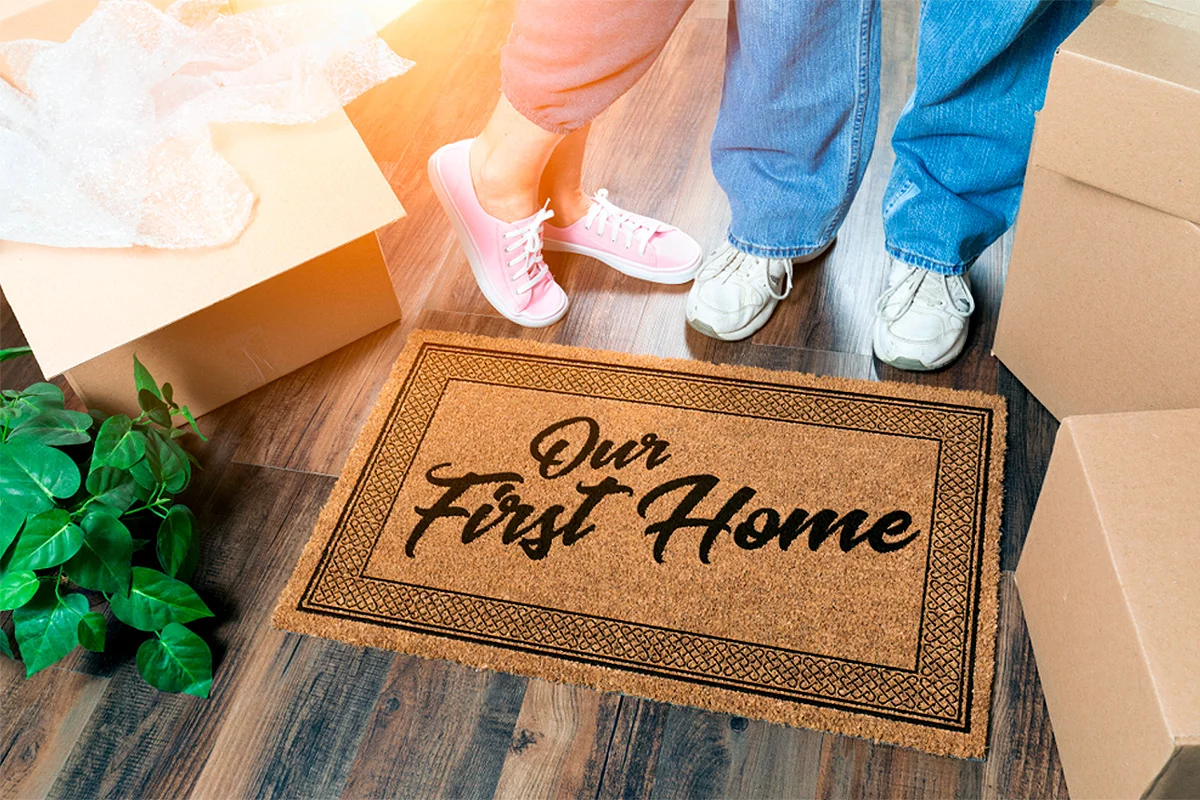If buying a home is on the top of your to-do list, you may have many questions about getting a mortgage. Before taking this important step, ask yourself these seven mortgage questions in order to determine if you are ready for homeownership.
Mortgage Question 1: What’s Your Budget?
The initial move towards owning a home is determining what you can afford. Your lender will factor in your income to decide how much of a loan you are eligible for, but ultimately it’s up to you to set an amount that won’t feel like too much strain each month and over the course of the loan. You may even qualify for loans with payments as high as 28-30% of your monthly salary which may be even more than you originally thought was possible! Financial advisors advise keeping the total housing costs at 25 percent of your income. While lower incomes don’t necessarily rule out homeownership, with some thoughtful budgeting you can still own a home even on limited funds. If you are wondering how you can get enough money saved for a down payment on a home we’ve put together 5 Tips To Help You Save For A Home Down Payment that can help you achieve your goal of home ownership.
Mortgage Question 2: How Much Do You Have for a Down Payment?
When applying for a loan, you’ll usually need to have some cash on hand as your down payment – the amount of which tends to determine how much money you are approved for. A higher deposit will also reduce your monthly mortgage payments! While traditional loans typically require 20 percent upfront, if the cost of the home is $300K, this would equate to an initial investment of around $60K. Fortunately, there are lender programs that can help lower what’s needed in terms of a down payment; however, it may come at an increase in your monthly payment.
Mortgage Question 3: How Much Money Do You Need for Closing Costs?
In addition to the down payment, you should also allocate funds for closing costs even though it is possible that the seller may cover these expenses in a buyer’s market. Closing costs may vary but generally range between 2-5% of your home’s value.
Mortgage Question 4: What Is Your Credit Score?
Before submitting a mortgage application, it is essential to check and review your credit report and score. A lower score may make lenders hesitant to approve your loan; however, if they are willing to do so, the associated interest rate will likely be higher than those with an excellent rating. Conversely, having a better credit record can reward you with more favorable terms on your home loan. You can check your own credit report without negatively impacting your score – simply contact any of Equifax, Experian, or TransUnion.

Mortgage Question 5: What Is the True Cost of Home Ownership?
When it comes to buying a house, most people focus solely on their monthly mortgage costs. While this is important these payments aren’t the only expenditures you should consider; its important to remember to budget for taxes and insurance as well. Unexpected expenses, such as maintaining the property, are also worth taking into consideration – sure, warranties may cover certain major expenses like appliances or HVACs, however, there are still other potential issues that could pop up unexpectedly (e.g., leaky pipes). For this reason, always plan ahead by setting aside some extra money each month.
Mortgage Question 6: Do You Qualify for Any Home Buyer Programs?
Purchasing a home can be daunting, yet there are various programs designed to make it simpler. Veterans have access to discounted rates and minimal down payment requirements with VA Loan options. First-time buyers might benefit from the relaxed FHA loan – typically only requiring 3.5% of the property’s cost upfront as a down payment, which is particularly advantageous for first-time homeowners who may not have excess funds available on hand. The FHA has just Announced Lower Mortgage Insurance Premiums For Loans which is estimated to save FHA loan borrowers an average of $800 per year! Property in rural areas could qualify for USDA loans that provide up to 100 percent coverage of the entire purchase price!

Mortgage Question 7: Is It Cheaper to Rent or Buy?
When you compare the mortgage cost to what you’re currently paying for rent, buying a home is usually the better financial decision. But don’t forget about other costs of homeownership – on top of your mortgage payments, there are utility bills and maintenance fees that landlords typically take care of if you rent. Most of the time even when these costs are combined they still come up short compared to what renting. Not only is homeownership rewarding, but purchasing a home can actually save you money in the long run.
Want More Answers or Guidance?
Once you’ve given thoughtful consideration to these questions and decided that home ownership is the right choice for you, your next move should be finding a mortgage broker who will simplify this process. An experienced lender can make everything easier by taking care of all financial matters while also providing clear explanations at each step along the way.
At Sword Mortgage, we believe that an informed customer is the best kind of customer. Therefore, our loan officers will take the time to fully explain your options and help you understand all aspects of your unique situation before making a decision. Call (770) 757-5750 to speak to a mortgage professional or get started on your loan application process today.




